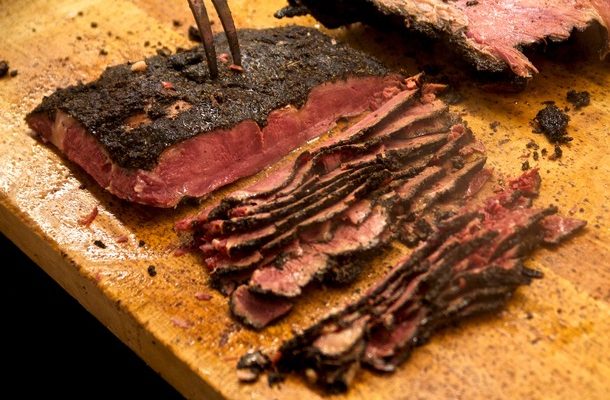Editor’s note: At Fit Nation Magazine, we believe in representing all sides of an issue. We do not promote any particular diets or fitness plans, and our authors’ opinions are their own.
This is a controversial topic, but I am a strong proponent of giving up meat and dairy and focusing on a more vegan/vegetarian diet. As a doctor, mother, and health-conscious individual, I believe that consumption of animal protein has many negative and detrimental health implications. So, where shall I begin? Let’s go back to the caveman times, or to be more precise, the Paleolithic era.
A strong point of contention I hear is that the Neanderthals were big meat-eaters. That in fact may not be accurate. According to anthropological research, these hunter-and-gatherers ate a variety of grains, nuts, fruits, vegetables, fish, and fungi, and what meat they did eat was grass-fed, free-range, and not pumped with growth hormones and antibiotics. It was a mode of survival to consume some meat during those prehistoric times. Meats are easily traced in the bones of our forebearers, but plants don’t leave their mark in our bones the same way. So while it is natural to assume that cavemen just sustained themselves on meat, it does not appear to be true.
Before I highlight the medical implications of animal protein consumption, I think it would be interesting to see how humans are really not designed to ingest meats, compared with true carnivores. Sure, we can call ourselves omnivores because it is our choice to consume dairy or meats, but our bodies are not really constructed to handle and process them. A great book to read is The Omnivore’s Dilemma by Michael Pollan.
Humans and herbivores do not have potent acid in the stomach to break down meats, whereas carnivores do—an acid that can be up to 25 times more potent. Humans and herbivores do not have sharp claws and sharp teeth to rip meats like carnivores do. Instead, we have flat rear molars intended to grind vegetables, which carnivores do not, and we have properly developed salivary glands that are required to start the digestive process of grains, fruits, and nuts, whereas carnivores do not. Both human and herbivore saliva is more alkaline due to ptyalin (an amylase that helps start the predigestion of starch), which is functional for fruit, grain, and nut digestion. Carnivore saliva is more acidic and does not contain ptyalin. And here’s the kicker…humans/herbivores have intestinal tracts that are about twelve times their body length, whereas carnivores have intestinal tracts less than five times their body length. That may seem strange, but the reason is why meat consumption is not conducive to good health.
It takes several days—even weeks—for humans to properly digest meat. Our bodies have a difficult time processing these overly complex proteins. Meat starts rotting within 4-6 hours after ingestion. If you have a weak stomach, hold on here—if one is constipated, the meat can sit around in the gut for a very long time, which creates carcinogenic risk in the colon and elsewhere. Consumption of animal protein, which includes both meat and dairy, contribute to an overall acidic state in the body, which gives way to increased risks for many diseases, including osteoporosis, heart disease, and cancer. Creating an alkaline environment cleanses the body and detoxifies it. Alkalinity in the body prevents progression to chronic disease states, including cancer.
Plant protein, on the other hand, is easy to assimilate, digest, and eliminate from the body. And believe it or not, plant sources can have twice as much protein as compared to meats on a per serving basis. Phenomenal! Additionally, plenty of vitamins and minerals, including calcium and iron, are readily available in plant protein sources. Although we are taught from a young age how glamorous milk can make our hair, nails, and teeth (because of those celebrity milk mustache ads—you know the ones I’m talking about), you’d be quite surprised that consuming dairy actually causes an acidic state which leads to weakened bones. Another argument against milk drinking is that it appears fairly unnatural—humans seem to be the only animal species that drink milk from other animals. and furthermore, continues drinking milk after being weaned. In most mammal species, lactase persistence decreases. So why don’t we wonder that lactose intolerance is actually fairly common? Dairy is pro-inflammatory, and exacerbates mucus production and congestion in the body.
Consumption of plant protein has numerous health benefits, such as lowered risk for cancer, heart disease, obesity, diabetes, stroke, and many more other chronic illnesses. Being lean does not equal being thin or sickly skinny. It means having more muscle mass than fat. It’s about obtaining a six-pack (don’t pretend you don’t want one). It’s about having muscle tone and definition. If we look at the vegetarians in the animal kingdom, they tend to be the most energetic and strongest of all animals—everything from horses and elephants to buffalo and gorillas.
A great benefit for reducing animal protein intake, aside from your own health, is the positive effect it has on Mother Earth. There is a new movement called Reducetarian, founded by Brian Kateman and Tyler Alterman.
“Many people are aware that their food choices have real-world consequences, but believe that the only solution is to completely eliminate meat from their diet,” said Kateman. “While this all-or-nothing mindset can be discouraging to the 95% of individuals who are not vegetarians or vegans, the [Tweet “#LessMeat pledge empowers everyone to make healthier and more eco-friendly food choices in a manageable way under an inclusive identity.””]
According to PETA, cows must eat 16 pounds of vegetation to convert them into 1 pound of flesh. We are using land to raise animals instead of crops, depleting natural resources such as soil and water, while increasing pollution from animal waste and producing greenhouse gases, which are toxic. A pig factory generates the raw waste equivalent of about 12,000 people. More than 80-90% of corn and oats are fed to livestock, and the cattle population in the world consumes an amount of food equal to the caloric needs of 8.7 billion—more than the entire population on Earth. Most shockingly, close to 90% of agricultural land is used for livestock, which means just one hamburger uses the same amount of fossil fuel as would power a car for 20 miles.
[Tweet “Better your health, save our planet: consume less meat and more plants.”] Not only will you be healthier, you will feel great because you know what you are doing is not only benefiting yourself mentally and physically, but helping our world.

